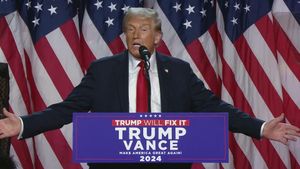Geopolitical Shifts Highlight Diverging Paths for Moldova and Georgia
The geopolitical landscapes of Moldova and Georgia, both aspiring for European Union (EU) membership, have taken sharply contrasting trajectories, particularly following recent election outcomes. While Moldova has secured its pro-European stance and emerged as a beacon of democratic progress, Georgia’s political environment has rapidly deteriorated, raising questions about its commitment to EU accession.
Moldova’s recent elections reaffirmed the leadership of President Maia Sandu and her pro-European government. This election result reflects the resolve of the Moldovan population to advance toward EU integration amid external pressures, particularly from Russia. Following the elections, Moldovans have demonstrated political unity, with over 85% supporting EU membership, much higher than their Georgian counterparts.
Conversely, Georgia has found itself increasingly immobilized by its ruling party, Georgian Dream. Despite more than 85% of Georgians expressing the desire to join the EU, the ruling party appears to stall the process, instead propagandizing anti-Western sentiments and filtering out pro-European voices within government communications.
This political disconnect is evident as Georgian citizens who support European integration find themselves lacking representation. The ruling Georgian Dream party is accused of echoing Russian narratives, undermining the aspirations of its own populace. A notable factor contributing to this situation is the substantial influence of the oligarch controlling Georgia, who has close ties to Russian interests and has previously been flagged by European institutions for manipulating the political narrative and public sentiment.
Meanwhile, under Sandu’s leadership, Moldova has aggressively tackled corruption, distinguishing itself as a model for democratic reforms within Eastern Europe. This dedication to transparency and governance reform has not gone unnoticed; the European Commission recently acknowledged Moldova’s positive advancements but has simultaneously frozen Georgia’s accession process due to unmet commitments.
The credibility of Georgia’s elections and the ruling party’s governance practices heavily detract from their potential EU membership. Georgia’s leadership has long been enveloped by political scandals and electoral disputes, eroding trust among EU officials and disillusioning the electorate.
Georgia faces genuine challenges as the ruling party continues to align with ideologies against Western integration, complicity fed by fears of retribution from Moscow as well as historical experiences of conflict. The fear mongering surrounding anti-western rhetoric has made it expedient for the oligarch-led ruling party to maintain the status quo, keeping the aspirations for EU membership at bay.
This situation starkly contrasts with Moldova’s path, where the population remains resolute, rallying behind Sandu’s earnest commitment to advance their nation’s EU integration goals. The two countries exemplify the divergent paths within Eastern Europe, with Moldova showing progress and tenacity against external opposition, and Georgia remaining caught within its own turbulent political waters.
The geopolitical shifts seen between Moldova and Georgia are representative of larger trends within Eastern Europe, where the stability of governmental structures plays foundational roles determining each nation’s approach toward EU integration and response to external pressures. The outcome of these varying commitments to integrity and alignment with European values will likely be consequential, not only for the prospects of these nations but also for the broader region itself.
Without substantial shifts within Georgia’s political climate, the nation risks falling behind its neighbors as Moldova races forward toward fulfilling its European ambitions. Meanwhile, the internal struggle for Georgia to reconcile its aspirations with its current political climate presents both challenges and opportunities as it navigates this pivotal moment. The future of Ukraine and other nations aspiring to secure stronger ties with Europe hinge not only on governmental reform but also on the ability to genuinely reflect the desires of their citizens willingly and proactively seeking Western association.



